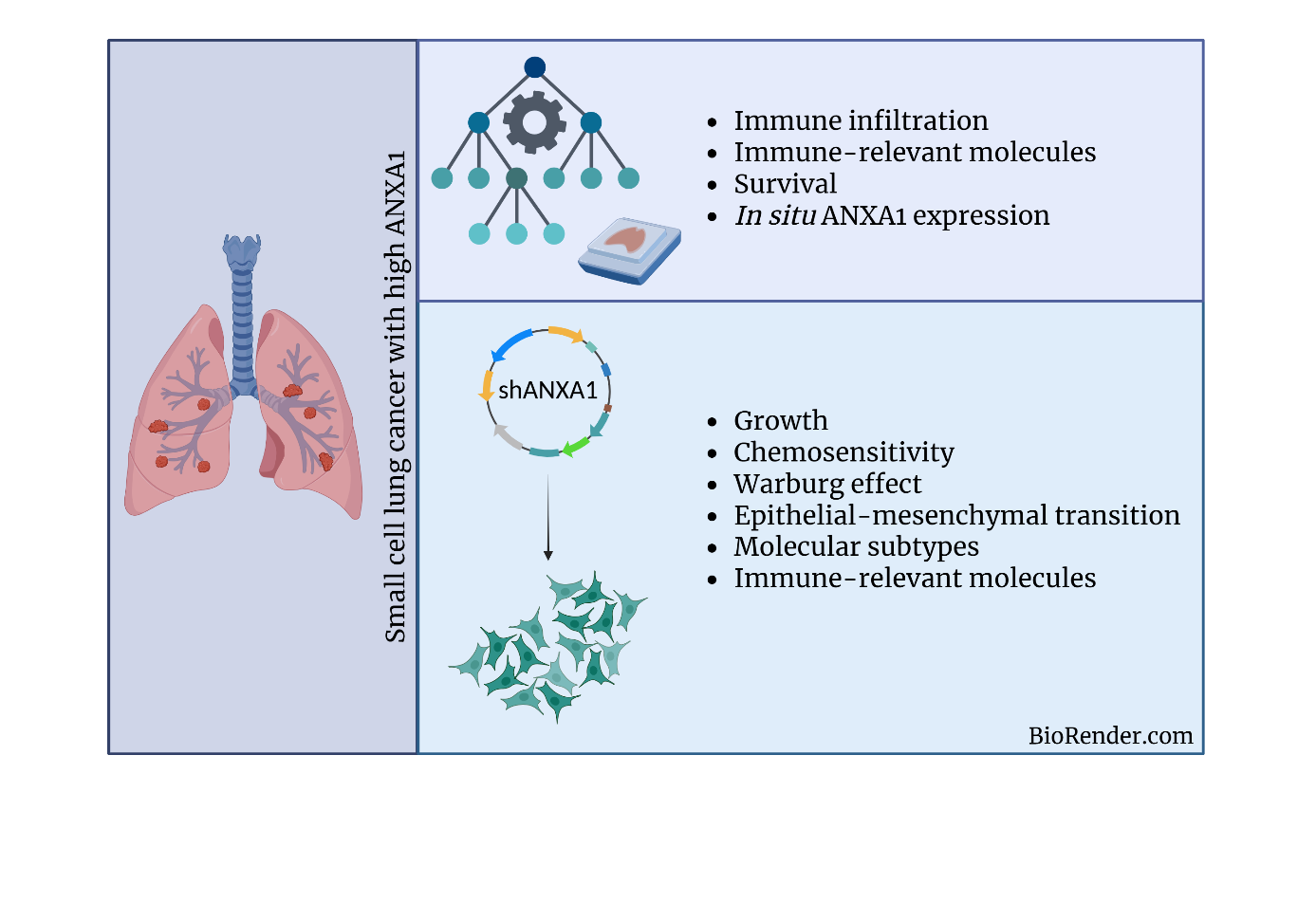Lung cancer is the leading cause of cancer-related mortality, with its larger subgroup, non-small cell lung cancer (NSCLC), having seen significant clinical advances through targeted therapies and immunotherapies. In contrast, small cell lung cancer (SCLC) remains one of the malignancies with the poorest prognosis, and new treatment options have not yet achieved a breakthrough. Molecular classification of SCLC, elucidation of therapy resistance mechanisms, and identification of novel biomarkers are crucial for the development of personalized therapies. Our research investigated the annexin A1 protein, a calcium-dependent phospholipid-binding protein, whose high expression in SCLC has been associated with an immunosuppressive tumor microenvironment and increased metastatic potential. We were the first to comprehensively characterize the functions of annexin A1 using small hairpin RNA (shRNA)-silenced SCLC cell lines, immunohistochemical analysis of tumor samples, and bioinformatic predictive algorithms. We demonstrated that annexin A1 influences cell proliferation, chemosensitivity, expression of malignant phenotype markers, as well as the immune cell composition of the tumor microenvironment. Our findings contribute to a deeper understanding of the complex biological processes underlying small cell lung cancer.
